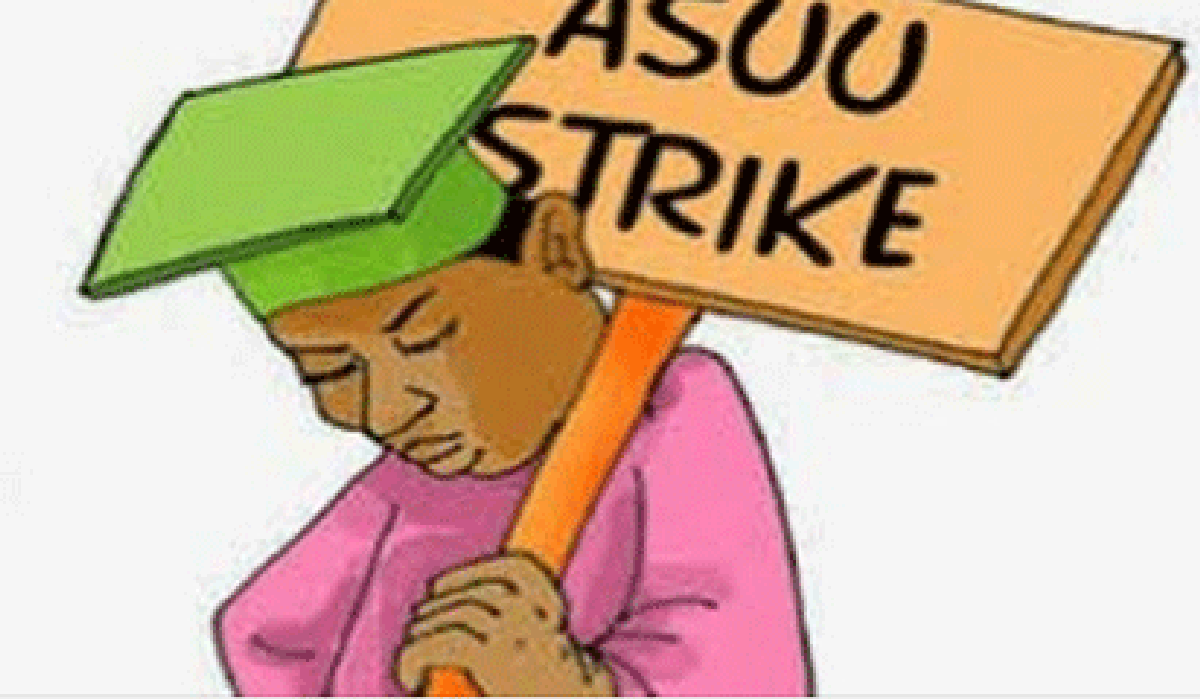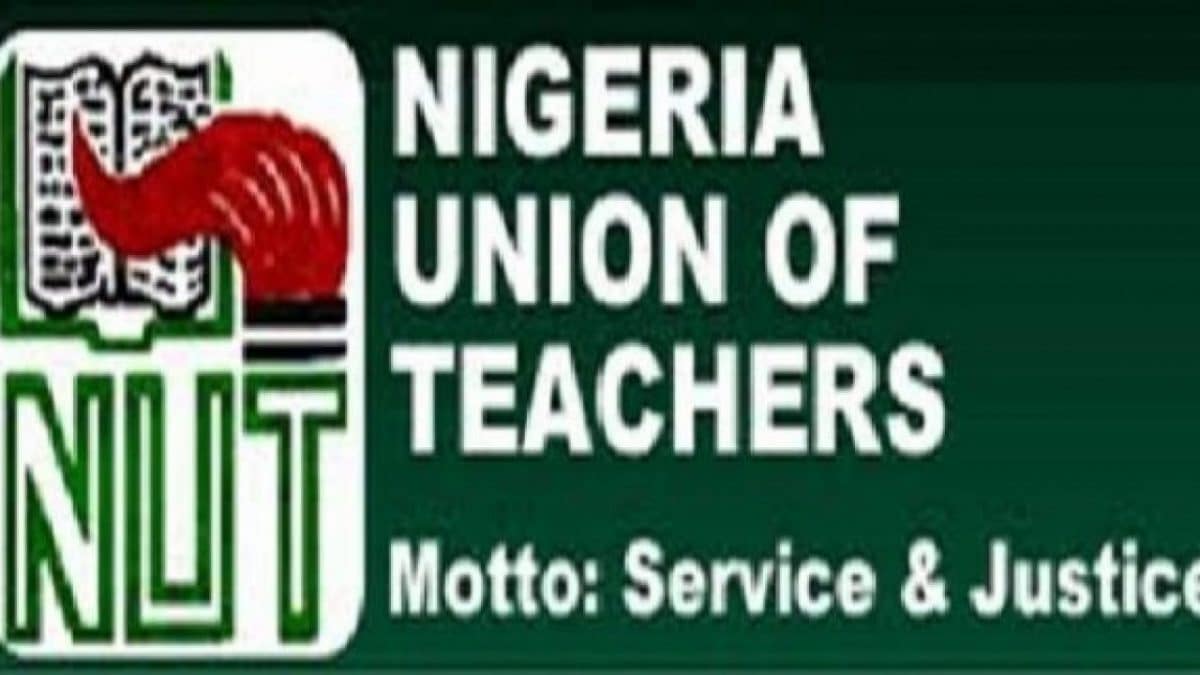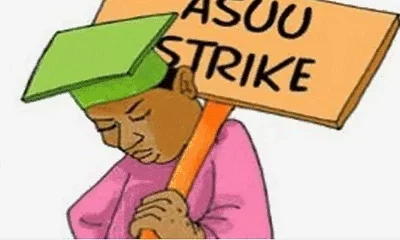Education
ASUU Strike, Nigerian Youths and 2023 Politics

By Emeka Alex Duru
On Thursday, April 28, social media platforms were lighted with pictures of Kaduna State governor, Nasir el-Rufai and his son, Ahmad in obvious excitement. Ahmad bagged a degree from one of the universities in London. To celebrate the feat, El-Rufai was in London for the graduation ceremony.
The governor was overtly happy.Having his son graduate when there are stories out there of youths abandoning their programmes of studies for social life, earns him a bragging right.
Importantly, in a system as ours where having children in foreign schools or seeking medical attention abroad, has become status symbol, the governor needed to assert his membership of the elite class.From President Muhammadu Buhari to Vice President Prof Yemi Osinbajo, down to the governors and the lawmakers at the states and national assembly, there are just few public office holders that do not have their wards studying abroad. Five of the President Buhari’s children attended prestigious universities in the United Kingdom – Buckingham University, University of Plymouth, University of Leicester and University of Surrey.
Osinbajo’s son, Fiyinfunoluwa graduated from Warwick University. Their predecessors also had their children educated abroad. Former Vice President, Atiku Abubakar, had in 2016, celebrated the graduation of one of his daughters from a foreign university.
Erstwhile Senate President, Bukola Saraki, who also served as governor of Kwara State, celebrated the graduation of his son from the London School of Economics. So, El-Rufai was not being out of tune.
To be sure, it is within their rights to train their children wherever they choose, as long as they have the means. Buhari put it more direct, when in response to a question by a foreign news medium on why his children were schooling in foreign lands and not in Nigerian universities, he said: “Because I can afford it.” Yes, he can afford it; yes, other office holders can afford it. But it goes beyond that. Education is a right and not a privilege. There are millions of Nigerians who do not have the opportunity or resources to send their children to schools abroad. There are over 11 million out-of-school Nigerian children out there in the streets, begging or doing odd jobs.
These are the people bearing the brunt of the caricature that the public education sector in Nigeria has been reduced to. It is for such Nigerians that the face-off between the government and the Academic staff Union of Universities (ASUU), matter a lot. The people at the receiving end, of course, may not matter to members of the political class. That is why, even with the lecturers in public universities in the country being on strike since February 14, no meaningful efforts have been made by the government to bring them back to the classrooms.
The much the government did in addressing the situation was in the Minister of Education, Adamu Adamu, walking out on the students who had visited him to find a solution to the crisis. All that bothers the average politician is what to joggle or maneuver in the run up to the 2023 general elections. No society develops on that curve.
Former Anambra State governor, Peter Obi, put it succinctly that the society, the youth that are being neglected and abused today, will take revenge tomorrow. There is danger in pretending that the universities remaining closed and the students roaming the streets, do not matter. They do, on the contrary.
We run on an estimate that puts Nigeria’s population at 200 million. The youths are approximated to constitute 60 percent of the number. In ordinary mathematical form, this is about 120 million. Out of the figure, 35 to 40 percent of the youths are said to be unemployed.
The ones in school are currently on the streets due to the industrial action by their teachers. This is a clear and present danger to the country. The #EndSARS protest of 2020 by the youths against the highhandedness of the police and sundry incidences of poor governance in the country, should have been enough to teach some lessons to the authorities. The impacts of the protest still resonate in many parts of the country.
The mismanagement of the protest leading to the exercise being hijacked by hoodlums, accounts for the rising security challenges in many parts of the country, today. Anything nearer to that experience, may pose more problems to the nation.
The ongoing strike is the 17th in the series by ASUU since the commencement of the present civilian dispensation in 1999. It has to do with the failure of the Federal Government to renegotiate the agreement it signed with the teachers in 2009, the demand by the lecturers for the replacement of the Integrated Personnel Payroll Information System (IPPIS), with the University Transparency and Accountability Solution (UTAS), as the payment platform in the university sector, among others.
The teachers insist that IPPIS has never been implemented in any university system anywhere. Among its drawbacks, they say, is that it will shut the door against foreign scholars, contract officers and researchers needed to be poached from existing universities to stabilize new ones.
But the Federal Government insists that the payment system is for transparency and neither intended to trample upon university autonomy nor designed to subsume the university into the civil service.
These are issues that can be resolved with openness of mind and sincerity of purpose by the two parties. But this is not the case. It is rather a matter of ego and haughty carriage by government officials detailed to negotiate with the striking lecturers.
We had argued in this space that Nigeria has become a classic case of where the leaders do something same way repeatedly and expect a different result. Such has never worked anywhere. Allowing the ongoing strike to linger, portends danger for all. Apart from the students losing years and interest in their studies, standard is affected, also. Above all, the society suffers.
What the government is doing by appearing ignorant of the students staying at home or loitering the streets, is exposing them to traits that were not originally in them. We may take it or not but when we talk of the rising culture of insecurity in the land, occasioned by the ravaging insurgency and terrorism in the North East, banditry in the North West, intermittent clashes in the North Central, kidnapping and ethnic nationalism in the South West and South East or militancy in the South-South, all boil down to the youth unleashing their anger on the nation that has neglected them for a long time.
It beats common logic that politicians, especially public officers are rushing to pay N40m and N100m for presidential nomination forms from the two leading political parties – the PDP and All Progressives Congress (APC), respectively – while the demands of the striking members of the Academic Staff Union of Universities (ASUU), are not being attended to. That shows the extent the Nigerian system has shrunk on the value it places on its youths and their future.
Bad enough, the National Chairman of ASUU, Emmanuel Osodeke, has declared that the strike will be extended if the Federal Government refuses to attend to the Union’s demands. That means more danger ahead. That should give every Nigerian serious concern.
Duru is the Editor, TheNiche Newspapers, Lagos. (08054103327, nwaukpala@yahoo.com)(Photo credit: music-wap)
Education
UNICAL VC Promises to Resolve Dentistry Students’ Crisis

From Ene Asuquo, Calabar
The Vice Chancellor of the University of Calabar, Prof. Florence Obi has promised that she would do everything humanly possible to ensure that the ongoing crisis in the institution’s Department of Dentistry, is resolved.
Prof.
Obi made the promise in Calabar during a press briefing, stressing that she will resolve the crisis before leaving office.She explained that the problem predates her administration, and pledged to intensify efforts to rectify the crisis.
She added that the crisis was as a result of the Medical and Dental Council of Nigeria (MDCN)’s refusal to induct 2016 Dentistry students of the institution.She also debunked claims circulating on social media that the institution’s Dentistry programme has lost its accreditation, describing the reports as “misinformation and distortion of facts,” clarifying that the programme remains fully accredited and no students have been directed to transfer to other universities.
“At no point did the University ask Dentistry students to seek transfers to other institutions, nor were they advised to ‘go and learn a trade’ as falsely alleged online,” the VC stated.
“I will feel very bad if I leave without solving this problem and the students are left hanging without knowing their fate. I won’t be fulfilled,” she said.
She reaffirmed the University’s commitment to ensuring all Dentistry students graduate and are duly licensed as dental surgeons.
She noted that the Dentistry programme commenced in the 2013/2014 academic session, and in November 2019, the University secured pre-clinical accreditation from the MDCN and full clinical accreditation was subsequently granted in December 2022.
The VC added that the university’s synergy and partnership with the Minister of Education and the Tertiary Education Trust Fund (TETFund) to upgrade its facilities.
“All we asked for is time to engage with other institutions, update the Medical and Dental Council of Nigeria (MDCN), and follow through on due processes,” she noted.
Speaking further, Obi said that some of the affected students demanded to be transferred to the Department of Medicine and Surgery but said it was not the solution as the department was already saturated.
She urged the affected students to remain calm, noting that the university was doing everything possible to resolve the issues before the end of her tenure.
Education
NUT Reaffirms Commitment to Teachers’ Professional Development in Kwara

From Abdullahi Abubakar, Ilorin
The Nigeria Union of Teachers (NUT), Kwara State Wing has restated its commitment to strengthening the professional growth of teachers across the State, to enhance the quality of education delivered in public schools. Speaking at the opening of a three-day capacity-building workshop in Ilorin, the State Chairman of the Union, Comrade Yusuf Wahab Agboola, noted that continuous training of teachers remains a vital component of educational reform and improved classroom delivery.
The training, organised in collaboration with the NUT National Secretariat, is targeted at selected teachers and focuses on the “Study Circle Conveners’ Model”—a grassroots strategy for enhancing peer-to-peer learning and participatory leadership within the education sector.
Comrade Agboola explained that the workshop aims to equip teachers with practical skills in collaborative learning, peer engagement, and innovative teaching practices. He expressed optimism that the training would promote professional bonding among teachers and foster collective solutions to challenges facing the education sector.Also speaking at the event, the National Coordinator of the NUT Study Circle Project, Comrade Solomon Igbelowowa, traced the initiative’s roots to 1985 when it was introduced in Nigeria by the Swedish Teachers Association, having recorded success in Sweden and other parts of the world. He commended the Nigerian Union of Teachers for sustaining the project over the years and urged participants to engage fully and make the most of the training opportunity.
The workshop was officially declared open by the National President of the NUT, Audu Amba, who was represented by the 3rd National Vice President, Bashir Oyewo.
He encouraged teachers to approach the sessions with dedication and punctuality.
Education
JAMB Sets 150 Cut-off Mark for University Admissions

By Tony Obiechina Abuja
The Joint Admissions and Matriculation Board (JAMB) has fixed 150 as the minimum cut-off mark for admission into Nigerian universities for the 2025/2026 academic session.
The decision was reached on Tuesday during the 2025 Policy Meeting on Admissions, held at the Bola Ahmed Tinubu International Conference Centre in Abuja, with stakeholders from various tertiary institutions in attendance.
According to JAMB, 140 was approved as the minimum score for colleges of nursing sciences, while polytechnics, colleges of education, and colleges of agriculture will admit candidates with a minimum score of 100.
“The minimum admissible scores for admissions for the next academic session have been fixed at 150 for universities, 100 for polytechnics, 100 for colleges of education, and 140 for colleges of nursing sciences by the stakeholders (Heads of Tertiary Institutions),” JAMB announced via its official X account.

















